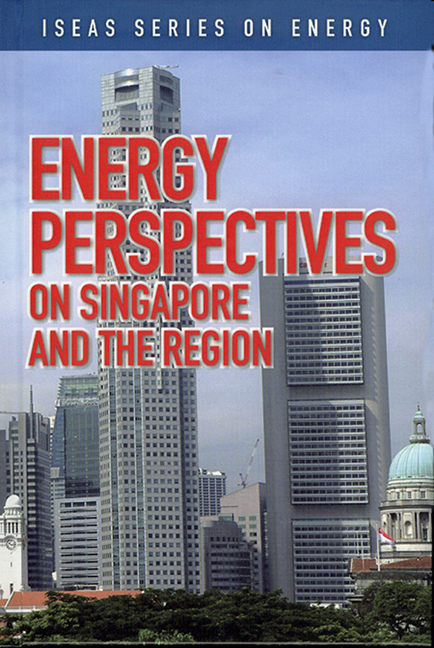Book contents
- Frontmatter
- Contents
- Foreword
- Preface
- The Contributors
- 1 Overview of Singapore's Energy Situation
- 2 Singapore's Changing Landscapes in Energy
- 3 Singapore's Role as a Key Oil Trading Centre in Asia
- 4 Large-Scale Solar PV Power Generation in Urban High-Rise Buildings in Singapore
- 5 The High-Carbon Story of Urban Development in Southeast Asia
- 6 Renewable Energy and the Environment: Technology and Economic Perspectives
- 7 Delivering Results in a Booming Rig Market
- 8 The Success Story of Rig Building in Singapore
- 9 The Singapore Oil Situation
- 10 Singapore Petroleum Company: Adding Value to the Singapore Oil Industry
- 11 Oil Storage: The Singapore Story
- REGIONAL and INTERNATIONAL
- Index
Foreword
Published online by Cambridge University Press: 21 October 2015
- Frontmatter
- Contents
- Foreword
- Preface
- The Contributors
- 1 Overview of Singapore's Energy Situation
- 2 Singapore's Changing Landscapes in Energy
- 3 Singapore's Role as a Key Oil Trading Centre in Asia
- 4 Large-Scale Solar PV Power Generation in Urban High-Rise Buildings in Singapore
- 5 The High-Carbon Story of Urban Development in Southeast Asia
- 6 Renewable Energy and the Environment: Technology and Economic Perspectives
- 7 Delivering Results in a Booming Rig Market
- 8 The Success Story of Rig Building in Singapore
- 9 The Singapore Oil Situation
- 10 Singapore Petroleum Company: Adding Value to the Singapore Oil Industry
- 11 Oil Storage: The Singapore Story
- REGIONAL and INTERNATIONAL
- Index
Summary
This timely book, published by the Institute of Southeast Asian Studies, is a significant contribution to knowledge about an important sector of our economy. Energy security is one of the most important issues on the international agenda. The competition between states for access to energy resources could, potentially, be a cause for misunderstanding and conflict. In an era when oil prices are high and rising to US$78 per barrel, and when Singapore imports 100 per cent of its energy needs, it is useful to help our citizens understand the complexities of issues relating to energy. This comprehensive book includes eleven chapters on Singapore's energy issues, four on China, one each on ASEAN, India, Japan, Middle-East, Australia and Russia. It includes a wide range of topics, including, coal, gas, oil rigs, solar power, and bio-fuels. The book also contains contributions by well- known oil companies such as ExxonMobil and Singaporean companies such as Keppel and Sembawang, which are pre-eminent in the building of jack-up oil rigs. The diversity of views and in-depth knowledge makes it a valuable and informative guide for students and others interested in energy issues.
Looking ahead, there is much work to be accomplished in the Singapore energy field. First, the Inaugural Singapore Energy Conference (SEC), held on 8–9 November 2006, sought to inform policymakers and industry leaders of the latest trends and ideas in the global energy industries. Over the years, we hope that the SEC will become a premier energy conference and position Singapore as an important thought centre on energy issues. After all, Singapore is a major oil refining and trading centre and a leading manufacturer of oil rigs in the world.
Singapore acceded to the Kyoto Protocol in 2006 and as a result, it has an international obligation to reduce its carbon emissions. As our economic activities all use energy derived from fossil fuels and result in carbon emissions, we need to focus on energy efficiency and find various ways to conserve energy.
- Type
- Chapter
- Information
- Energy Perspectives on Singapore and the Region , pp. ix - xPublisher: ISEAS–Yusof Ishak InstitutePrint publication year: 2007

